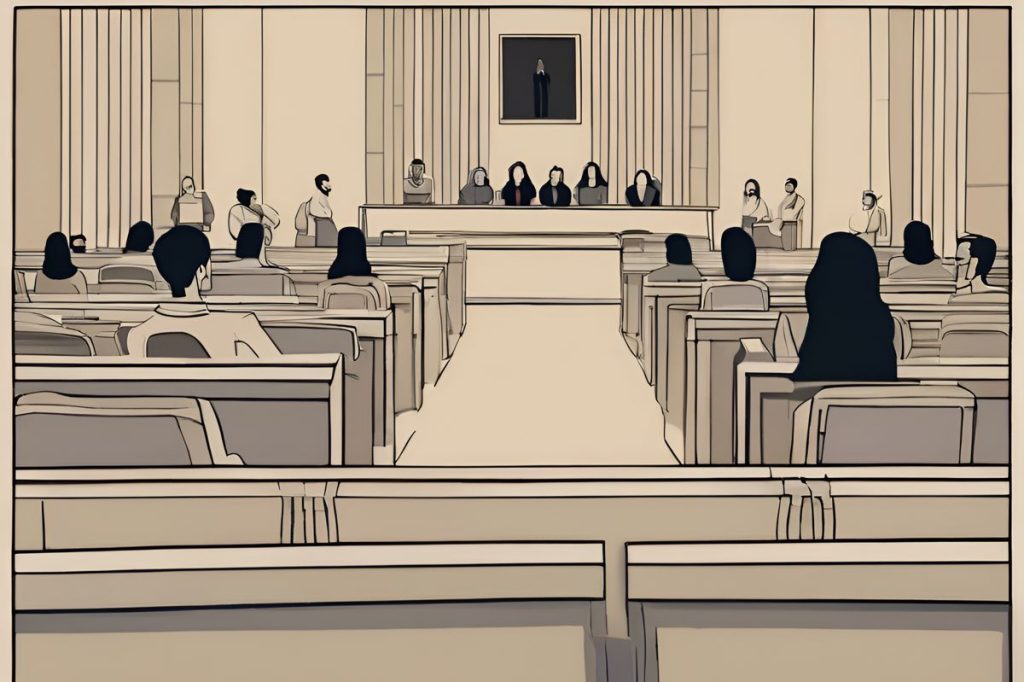The collapse of the Isias hotel in Adiyaman, leading to 35 fatalities, has sparked a legal showdown as 11 individuals face charges for “causing death by conscious negligence,” potentially facing 22.5 years in prison. The trial probes the hotel’s structural integrity and regional building safety concerns, shedding light on the tragic event’s aftermath and the community’s quest for justice and prevention.
What caused the collapse of the Isias hotel and what is the judicial response?
The collapse of the Isias hotel, which resulted in 35 Cypriots’ deaths, was due to a catastrophic earthquake in Adiyaman. A legal battle follows, with 11 individuals facing charges of “causing death by conscious negligence,” potentially leading to 22.5 years in prison. The trial spotlights the hotel’s structural integrity and regional building safety concerns.
The Fateful Day
On the morning of February 6, the quaint city of Adiyaman was shaken by a calamity that reverberated across nations. The Isias hotel, a seemingly secure abode for the visiting volleyball team from the Famagusta Turk Maarif Koleji (TMK) school, was reduced to rubble by the region’s devastating earthquakes. Among the 35 Cypriots who perished were 24 blossoming children and 11 devoted teachers and coaches. The TMK school volleyball team, subsequently named the “champion angels,” has now become a symbol of both tragedy and resilience.
The structural failure of the Isias hotel did not only claim the lives of the Cypriots but also resulted in an additional 47 casualties. The earthquake’s wrath proved indiscriminate, laying bare the vulnerability of human edifices in the face of nature’s might.
The Judicial Response
In the aftermath of the disaster, a legal battle ensued. A total of 11 individuals, charged with “causing death by conscious negligence,” face the possibility of 22 and a half years of imprisonment. Among the accused are the hotel’s owner, Ahmet Bozkurt, and his two sons, Mehmet Fatih Bozkurt and Efe Bozkurt. Despite their denial of all charges, the weight of the allegations hangs over them as the trial progresses.
The defendants’ fates may hinge on the findings from various technical reports. Controversy already surrounds the report from Ankara’s Gazi University, condemned by grieving father Murat Aktugrali as “very incomplete and technically unequipped.” In contrast, assessments from other institutions like Trabzon’s Karadeniz Technical University and the Istanbul Technical University have been more critical of the hotel’s structural integrity.
The Community’s Sorrow and Resolve
As the clock strikes nine on the appointed day of the trial, the courtroom will witness a gallery filled with sorrow and determination. The bereaved families of the 24 children, supported by esteemed Turkish Cypriot figures, will face the defendants. The presence of ‘prime minister’ Unal Ustel, ‘education minister’ Nazim Cavusoglu, and other dignitaries underscores the case’s gravity and the community’s unified stance.
One of the parents, Rusen Yucesoylu Karakaya, channels her grief into a vow for justice, asserting, “Neither fatigue nor pain will deter us.” Her words reflect a community’s collective heartache and unwavering spirit, seeking to honor the memory of the “champion angels” and all earthquake victims.
Adiyaman’s mayor, Abdurrahman Tutdere, echoes the sentiment, noting the city’s lingering pain and the moral imperative to respond. His administration’s efforts to revamp planning laws are an endeavor to shield the city from future disasters. This proactive stance signals a commitment to not only remember the victims but to prevent a recurrence of such tragedies.
Moving Towards Prevention
The trial’s implications extend beyond the courtroom, stirring conversations about earthquake preparedness and building safety. As the region grapples with the aftermath, it becomes clear that current regulations fall short of protecting citizens from natural calamities. The necessity for “legal studies” and legislative action is evident, with calls for the Turkish parliament to heed these urgent warnings.
Turkish officials are now tasked with the responsibility of transforming their constituents’ grief into proactive measures, ensuring that the legacy of the Isias hotel collapse is not just one of loss, but also of learning and prevention. The call to action resonates with a clear message: the protection of human lives must be paramount in the face of nature’s unpredictability.
What caused the collapse of the Isias hotel and what is the judicial response?
The collapse of the Isias hotel, which resulted in 35 Cypriots’ deaths, was due to a catastrophic earthquake in Adiyaman. A legal battle follows, with 11 individuals facing charges of “causing death by conscious negligence,” potentially leading to 22.5 years in prison. The trial spotlights the hotel’s structural integrity and regional building safety concerns.
What was the impact of the collapse on the community and how are they responding?
The collapse of the Isias hotel had a profound impact on the community, resulting in the loss of 35 lives, including 24 children and 11 teachers and coaches. The community is responding with sorrow and determination, seeking justice and prevention measures. The city’s administration is revamping planning laws to better protect against future disasters, emphasizing the need for proactive measures.
What role do technical reports play in the ongoing trial of the Isias hotel collapse?
Technical reports from various institutions, such as Ankara’s Gazi University, Trabzon’s Karadeniz Technical University, and the Istanbul Technical University, are pivotal in determining the structural integrity of the Isias hotel. These reports are scrutinized for accuracy and completeness to ascertain the level of negligence that led to the collapse.
How is the Isias hotel collapse trial shedding light on the importance of earthquake preparedness and building safety regulations?
The trial of the Isias hotel collapse is sparking conversations about the necessity of earthquake preparedness and stringent building safety regulations. It highlights the shortcomings in current regulations and calls for legislative action to better protect citizens from natural disasters. The trial serves as a reminder of the paramount importance of prioritizing human lives in the face of nature’s unpredictability.

